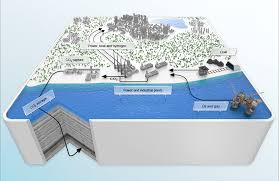
CO2 storage on the Norwegian shelf
London, February 07, 2025, (Oilandgaspress) –––Last year, more licences were granted for storing CO2 on the Norwegian continental shelf than ever before.
“The NCS is very attractive for safe CO2 storage,” says Ann Helen Hansen, CCS coordinator in the Norwegian Offshore Directorate.
Four exploration licences were granted in 2024, and offers were extended for two exploration licences, making last year the most prolific to date when it
“Safe and prudent storage of CO2 could become a new industry that can build on the experience we’ve gained from the oil and gas industry. There are environmental measures here that offer good earning opportunities for the companies,” says Hansen.
When the last two offered licences are finally awarded, this will amount to a total of 13 licences to store CO2 on the NCS.
These are the reasons
Hansen highlights three things in particular that make the NCS attractive:
Storage experience from the Sleipner and Snøhvit fields has provided invaluable knowledge about safe storage.
The Norwegian shelf, particularly the North Sea, is mature. Here, data and information have been collected over many years, and much of this data is available to the public.

We also have a regulatory framework in place, which means predictable terms and conditions.
If all ongoing projects are realised, as much as 2 billion tonnes of CO2 could be stored on the NCS. The storage potential in these areas amounts to nearly 10 billion tonnes.
How much can actually be stored depends on a number of factors, such as information from further mapping, access to CO2 in the market, and which development solution is ultimately selected for the project.
Information Source: Read More
Oil and gas press covers, Energy Monitor, Climate, Gas,Renewable, Oil and Gas, Wind, Biomass, Sustainability, Oil Price, LPG, Solar, Marine, Aviation, Fuel, Hydrogen, Electric ,EV, Gas,

